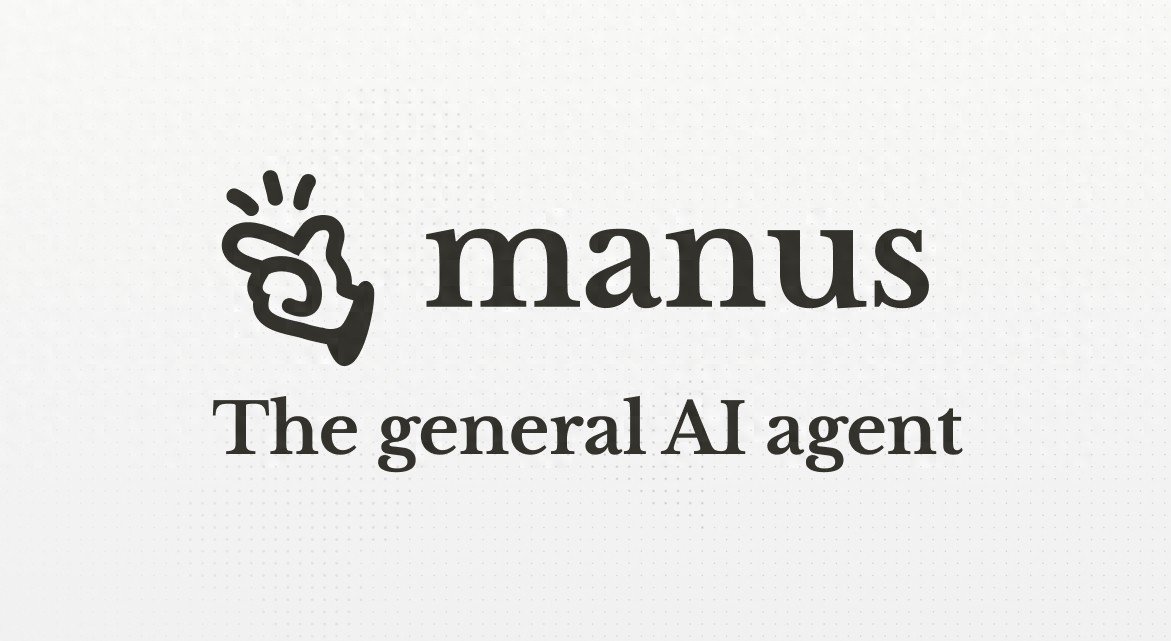A new AI product called Manus is taking the tech world by storm, with beta access codes reportedly selling for up to ¥50,000 ($7,000) on resale platforms. Developed by Chinese startup Monica.im, Manus is being hailed as the world’s first general AI agent, setting itself apart from ChatGPT, DeepSeek, and other large language models (LLMs) with its ability to not only think but also take action.
01—What Is Manus? A Leap from ‘Thinking’ to ‘Doing’
The name Manus comes from the Latin phrase “Mens et Manus” (Mind and Hand), reflecting its core capability: combining advanced AI reasoning with task execution. Unlike traditional AI models that function primarily as advisors, Manus acts as an end-to-end AI assistant, capable of completing complex workflows autonomously.
Key Innovations
- End-to-End Task Execution – Users can give a single instruction (e.g., “Find the best neighborhoods in New York for buying a home”), and Manus will break down the task, gather data, generate reports, and present actionable results—all without further user input.
- Cloud-Based Asynchronous Processing – Manus can continue working even when the user’s device is offline, sending notifications when tasks are completed.
- Adaptive Learning & Memory – The AI remembers user preferences (e.g., favoring spreadsheets over text reports) and refines its output over time.
02—The Technology Behind Manus: A Multi-Agent ‘Super OS’
Unlike traditional AI assistants powered by a single large language model, Manus operates as a multi-agent system, integrating Claude 3.5, DeepSeek, and other leading AI models within a virtualized environment. This architecture allows it to dynamically allocate resources and execute tasks securely.
Technical Highlights
- Automated Workflow Integration – Manus combines capabilities such as code generation, web automation, and data analysis into seamless workflows, eliminating the need for manual intervention.
- GAIA Benchmarking Leader – In the GAIA benchmark, a leading test for real-world AI problem-solving, Manus scored 86.5% on basic tasks and 57.7% on advanced tasks, outperforming OpenAI models in the same category.
- Human-Like Workflow Adaptation – When encountering obstacles such as CAPTCHAs or login restrictions, Manus can simulate human interactions, adjusting its approach in real-time.
03—Real-World Applications: The ‘Digital Workforce’ Revolution
Manus has already been deployed across 60+ professional and personal use cases, transforming industries from HR and finance to education and travel planning.
Notable Use Cases
- Resume Screening – Manus can extract key insights from multiple resumes, rank candidates, and generate evaluation reports in minutes.
- Travel Planning – It can design personalized itineraries, integrating transportation, accommodations, and sightseeing recommendations into a comprehensive travel guide.
- Stock Market Analysis – Manus is capable of scraping three years of NVIDIA’s financial data, conducting cross-analysis, and generating visual investment reports.
- Educational Content Creation – It can write physics lesson scripts for teachers, breaking down complex topics like momentum theorem into easy-to-understand explanations.
A developer who tested the system described it as “an AI intern with initiative”, capable of handling delegated tasks independently while remaining responsive to new instructions.
04—Industry Disruption: The AI Agent Era Has Arrived
Manus’ rapid rise highlights a broader trend: AI agents are becoming mainstream. According to China Securities and UBS, 2025 is expected to be the breakthrough year for AI agent commercialization.
Challenges and Opportunities for Chinese AI
- Innovation Concerns – Some industry experts argue that Manus relies heavily on existing AI models and open-source toolchains, raising questions about its originality.
- Competition from Tech Giants – With OpenAI, Microsoft, and DeepSeek also exploring AI agent capabilities, can Manus maintain its competitive edge?
- Reliability & Hallucination Issues – While AI hallucinations remain an industry-wide challenge, ensuring accurate task execution will be crucial for real-world adoption.
Despite these concerns, China’s Ministry of Industry and Information Technology (MIIT) has recognized Manus as “a major breakthrough in AI usability”, praising its ability to integrate diverse AI models into a unified, functional system.
05—Will Users Pay for Their ‘AI Assistant’?
Currently, Manus remains in limited beta, with over 1 million users on the waitlist. Founder Xiao Hong, a serial entrepreneur in his 30s, has announced plans to open-source parts of the technology to foster AI community collaboration.
Public Reactions
- “This is what AGI looks like! Humanity is one step closer to automation.”
- “¥50,000 for an invite code? I’d rather wait for an open-source alternative like MetaGPT.”
- “The demo looks great, but can it truly replace white-collar jobs?”
06—Conclusion: The Next Phase of AI Productivity
Manus represents a paradigm shift from conversational AI to action-driven AI collaboration. While skepticism remains, it undoubtedly accelerates the AI productivity revolution.
As a professor from Huazhong University of Science and Technology put it:
“Manus has pushed AI agent technology one step closer to mainstream adoption.”




